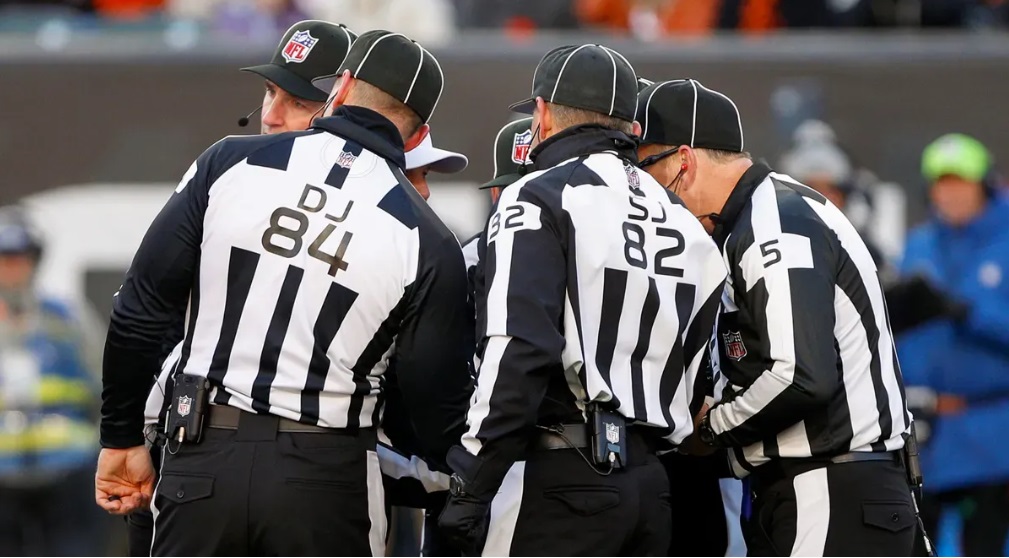As the NFL playoffs begin this Saturday, fans can expect to see a familiar practice that has become an annual tradition: the dismantling of the 17 regular-season officiating crews and the creation of six new ones for the postseason.
Videos by FanBuzz
This shift is based on the performance of the officials throughout the 18-week regular season, with the league opting for an "all-star" approach. But as Mike Florio of Pro Football Talk points out, while this system rewards high-performing officials, it's not without its flaws.
On one hand, the strategy of mixing the top performers from various crews ensures that the best officials are given the opportunity to work in the most critical games. Florio highlights that this approach is meant to give those who have excelled during the regular season a chance to showcase their abilities on the biggest stage.
However, as one source explained to PFT, the practice also leaves less-competent officials behind, meaning those who have proven themselves worthy of postseason assignments are happy to see their weaker colleagues sidelined during the high-stakes moments.
But not everyone is thrilled with the NFL's decision to reconfigure officiating crews. Coaches and others in the game argue that the disruption to established teams can lead to issues, as officiating is a craft that thrives on familiarity and consistency.
As Florio notes, reshuffling crews after 18 weeks of regular-season football means that officials who have worked together all year are forced to quickly integrate with new teammates, forcing individual styles to mesh on the fly.
For officials from the same crew, the risk is that they might subtly overpower or influence their newer colleagues, leading to a lack of cohesion. And for the newcomers, the priority might shift from getting the calls right to simply fitting in with the established group, potentially creating mistakes.
The issue here, as one source told Florio, is that "bad calls happen in the regular season, bad calls happen in the postseason." But in the postseason, those bad calls are often magnified, and the all-star officiating crews could be an overlooked root cause of some of those errors.
\The nature of officiating in high-pressure moments demands quick, confident decision-making — and when crews haven't had the same time to gel as regular-season teams, hesitation can creep in and lead to mistakes.
While the average viewer may not notice any substantial differences in officiating between the regular season and the playoffs, those with a keen eye for the game may recognize that the lack of continuity within officiating crews could lead to costly errors at the most critical times.
As Florio emphasizes, the splitting and rebuilding of officiating teams for the playoffs could very well be a contributing factor to some of the high-profile mistakes that inevitably occur.
Ultimately, while the NFL's all-star approach aims to put the league's top officiating talent in the postseason spotlight, it's clear that this practice is not without its flaws. As teams gear up for the playoff run, it might be worth asking: are the risks of reshuffling the deck really worth it when the stakes are at their highest?
